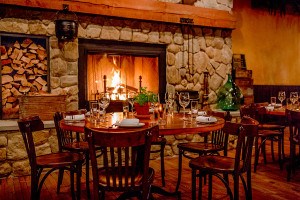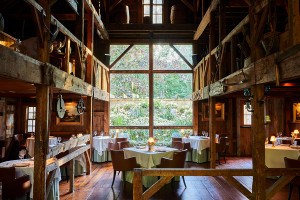What's Brewing: Mystic Brewery
“Our approach is to not really use the cookie cutter equipment and methods that everybody uses. The focus is to actually brew like a Belgian,” says Bryan Greenhagen, the founder of Mystic Brewery in Chelsea, which launched its beer in May.
But why Belgian? According to Garrett Oliver’s Oxford Companion to Beer, “Belgian brewing is a realm of non-conformists … the Belgian brewer defines himself and will not be fenced in.” Greenhagen seems to fit that mold to a T. “People expect variations in wine, but not in beer,” says Greenhagen. “The whole thing is a live process with variables.”
Greenhagen studied how plants make flavor and fragrances in graduate school at the University of Kentucky’s agriculture school before getting a biochemistry post doc degree from MIT. He’s also been brewing beer for 14 years — it’s only natural that someone learned in the realm smell and taste would gravitate toward Belgian brewing. “A lot of breweries that try Belgian styles, they brew it in German equipment and it’s completely the opposite philosophy. The idea of German brewing is to brew very cleanly. And the idea with Belgian is to brew in this crazy way with lots of flavors.”
But rather than sink a chunk of change into a full-blown brewery and all the necessary equipment, Greenhagen took another cue from Belgian brewers and decided to make his beer off-site at a farmhouse brewery in Fiskdale, then truck it back to Chelsea to be fermented in wine barrels and packaged in cage and cork bottles. “Our facility is a fermentorium,” he says. “It doesn’t have the grain extraction, the boilers. We’re the only ones we know of starting up this way.” Another twist on the typical setup is the use of square wine fermenters. “We thought scientifically it makes no difference, but we’ve been getting comments that it tastes different. There isn’t a uniform temperature, so that’s part of what makes the beer itself different.”
So far, the brewery has churned out 80 barrels and is expecting to hit 250 by the end of the year. The first two releases available are the Saison and Descendant — a dark ale with molasses — but a barrel-fermented version of the Saison is being released next week, and if you hit up the Valley Malt Local Harvest Beer Tasting on Saturday at Meadhall, you can try test batches of their wheat wine and rye saison. Because the beers are so highly carbonated, nothing’s on tap locally yet, but Greenhagen is working on specific batches for draft lines.
In the future, Greenhagen plans on delving into lambic and sour brews and hopes to eventually ferment beer using only native New England yeast strains — a rather unpredictable project that no one has accomplished yet. But Greenhagen wouldn’t have it any other way. “You can’t tell fermentation what to do. Research plays a part in brewing, but serendipity is the mystic side of the equation,” he says.



